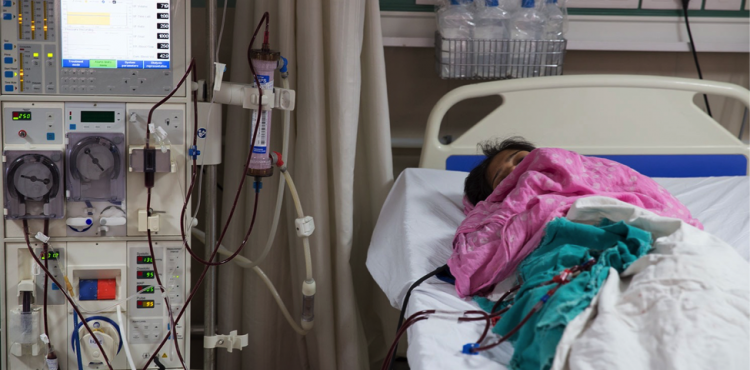About this study
People with advanced kidney disease or those receiving dialysis often have other diseases related to the heart, brain and blood vessels, known as vascular disease (for example, heart attack, stroke and poor blood circulation). However, few treatments have been proven to prevent these conditions in people with advanced kidney disease. Blood thinners (medicines that prevent blood clots) are frequently used and proven to help other groups of people who are at high risk of vascular disease.
There is little understanding of whether blood thinners provide similar benefits in people with advanced kidney disease. The aim of the TRACK study is to find out whether a low dose of blood thinning medicine can reduce heart and vascular disease better than placebo (a look alike tablet that contains no active medication) in people with advanced kidney disease.
Recruitment criteria
Inclusion:
- Age ≥18 years,
- Advanced kidney disease (kidney failure on dialysis, or stage 4 or 5 not receiving dialysis)
- Increased risk of heart or blood vessel disease:
- History of coronary artery disease or peripheral artery disease or specific types of stroke, or
- Diabetes, or
- Age ≥65 years.
Key Exclusions:
- Indication for, or contraindication to, anticoagulant therapy
- High bleeding risk
- Current treatment with P2Y12 inhibitors/ADP receptor inhibitors (clopidogrel, prasugrel, ticagrelor, cangrelor) or phosphodiesterase inhibitors (dipyridamole), where the treating doctor or patient does not wish to stop these medications
- Haemoglobin <90 g/L, or platelet count <100 x 109/L,
What’s involved?
- If eligible for the study, you will receive placebo tablets for approximately 3 weeks. This is to ensure you are able to follow the study medication schedule.
- If you are able to take the placebo tablets twice a day for 3 weeks, you will be eligible for randomisation. This means that you will be placed into one of two groups (blood thinning medication or placebo) using chance (like tossing a coin).
- From randomisation, you will be required to take the blood thinning medication or placebo (depending on the group you are placed in) twice a day, for the period of the study. The study will continue for up to about 5 years.
- Study staff will contact you at 1 month and 3 months after randomisation. From then on, you will be contacted every 3 months. These follow up visits can be done in the clinic or via telephone. Researchers will collect information about your health and whether you have been taking the study medication as prescribed.


